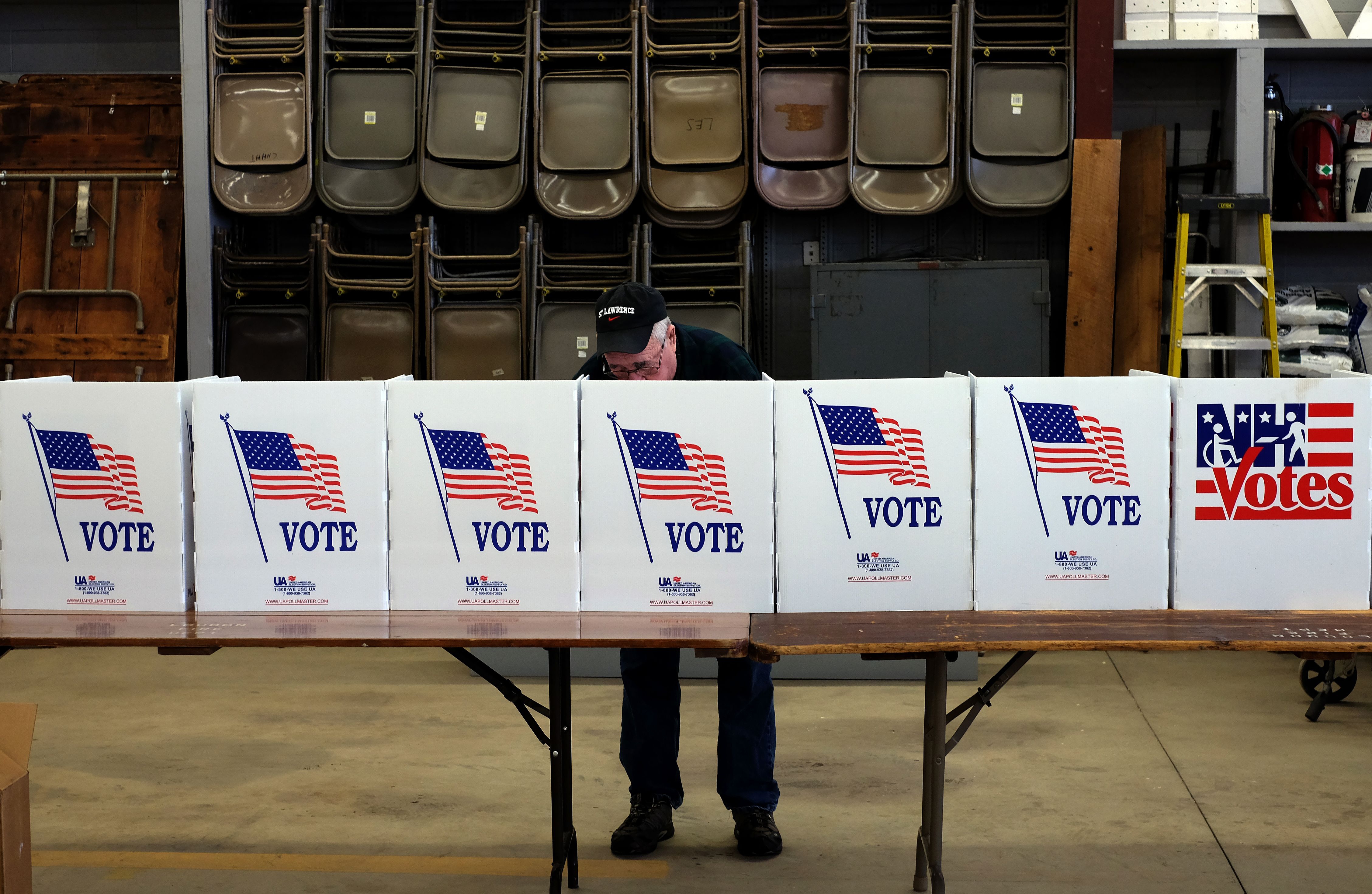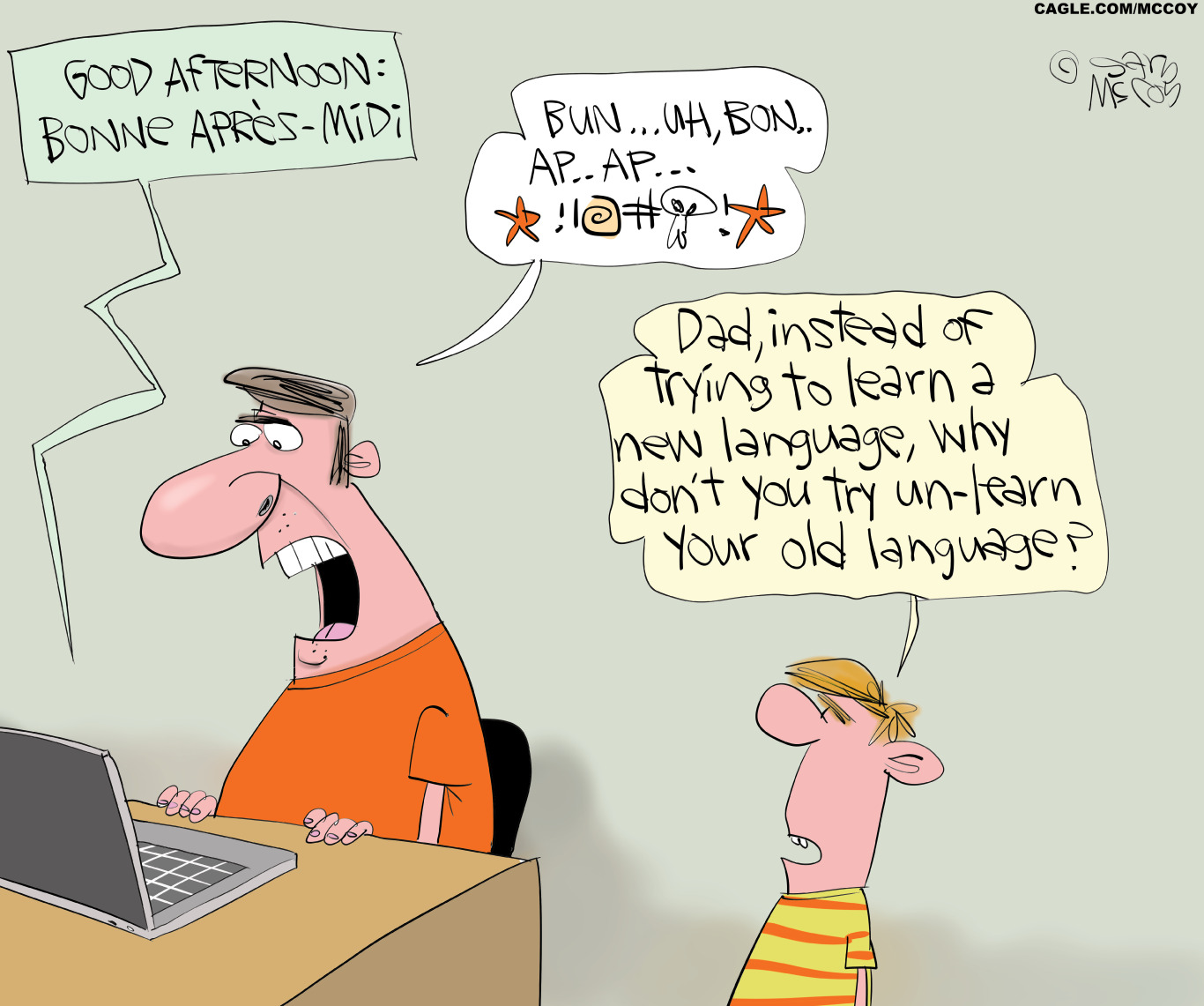Why you should be legally required to vote
It's time for America to seriously consider compulsory voting


Americans don't vote.
Not all of us, of course. Tens of millions of us do vote. But far too many of us don't.
In the 2012 presidential election, only about 57.5 percent of eligible voters cast ballots. The 2014 midterm election had historically low turnouts: Only 36.4 percent of the electorate voted. That means nearly two-thirds of us didn't bother to go to the polls.
The Week
Escape your echo chamber. Get the facts behind the news, plus analysis from multiple perspectives.

Sign up for The Week's Free Newsletters
From our morning news briefing to a weekly Good News Newsletter, get the best of The Week delivered directly to your inbox.
From our morning news briefing to a weekly Good News Newsletter, get the best of The Week delivered directly to your inbox.
Efforts to tweak the election process to increase turnout have largely been ineffectual. Early voting doesn't actually increase turnout. Nor does moving elections to weekends. Making registration easier hasn't had much of an effect either.
There is one reform that would certainly increase turnout, though: compulsory voting. If you required people to vote, voting rates would increase substantially. In Australia, all eligible citizens are required to vote; if they don't they are fined $20. Not much of a penalty — but effective enough that voting rates in Australia are in the neighborhood of 80 percent.
There's not much popular or political enthusiasm for compulsory voting in the U.S. People don't like the idea of having another civic obligation, even one enforced only with a nominal fine. And there are many who believe, like The Week's Damon Linker, that "if you can't be bothered to vote, you probably aren't paying attention; and if you aren't paying attention, we'll probably all be better off if you keep not bothering."
It's true that people who don't vote are disengaged — but that's not quite the same as saying that they aren't paying attention. It may simply be that they don't think their votes matter.
A free daily email with the biggest news stories of the day – and the best features from TheWeek.com
"People are more likely to vote when they feel efficacious," says Yanna Krupnikov, a political science professor at Stony Brook University. "When people believe that their political preferences do not matter at all, they are less likely to turn out and vote."
This creates something of a catch-22. The voters who are least well served by the system — such as the poor or African-Americans or Hispanics — feel that their votes don't matter, and therefore are less inclined to vote. This is not necessarily because they aren't paying attention. It's often because they are paying attention, and recognize that the political system does not care about them. But by not voting, they ensure that the system is even less responsive. This in turn alienates them further — and so on.
Non-voters aren't foolish or ignorant. They are making reasonable, even informed choices about the effort of voting versus the power of their votes. The individual reality of disempowerment creates rational individual choices. And those rational choices, unfortunately, contribute to further collective disempowerment.
Compulsory voting would interrupt this cycle. Suddenly, voting would be less costly than not voting, and as a result, many more people would go to the polls. And those new voters would very likely have a strong effect on public policy. Anthony Fowler, a professor at the Harris School of Public Policy at the University of Chicago, told me that in his research into Australia's voting patterns, "compulsory voting increased the average vote share of the labor party by about 9 percentage points in state assembly elections." Further, he said, "compulsory voting appeared to significantly increase pension spending, a major policy goal of the working class."
There's evidence from the U.S., too. Democrats are more successful in presidential election years than in off-year elections. In larger turnout years, more young people and more people of color vote, which tends to swing elections toward politicians who address the concerns of those groups. As Fowler told me, "Voters are typically very different from non-voters or marginal voting populations, so efforts to expand the voting population can have big effects."
Rather than forcing disengaged and ignorant people to vote, compulsory voting is likely to create a more engaged, more knowledgeable electorate. "People do pay more attention to politics when they know for certain that they are committed to voting," Krupnikov told me.
There's every reason to believe that compulsory voting will make many voters feel, correctly, that their votes matter more.
Is it moral to compel people to vote — even with a punishment as light as a $20 fine? Fowler argues that it is. "This is a classic collective action problem, not unlike paying taxes or cleanly disposing of your garbage," Fowler told me. "How do we normally resolve collective action problems like paying taxes? We don't have go-pay-your-taxes drives, and we don't criticize tax evaders for being stupid or failing to do their civic duty. We compel (or strongly incentivize) people to pay their taxes through legal means."
Democracy is stronger and more just when the political system is accountable to the public. Compulsory voting would include more people in the process; like women's suffrage and black suffrage, it would push the United States a little closer to honoring its ideals.
A bigger electorate would, of course hurt Republicans, which is why they oppose it. Nor have the Democrats taken up the issue. So yes, there's no clear political path to adoption. But compulsory voting is worth talking about, if only to highlight the number of people in the United States whose political voices are silent because we've decided its not important to hear them.
Noah Berlatsky is a freelance writer whose work appears in The New Republic, The Guardian, and other venues. He is the author of Wonder Woman: Bondage and Feminism from Rutgers University Press.
-
 Political cartoons for January 4
Political cartoons for January 4Cartoons Sunday's political cartoons include a resolution to learn a new language, and new names in Hades and on battleships
-
 The ultimate films of 2025 by genre
The ultimate films of 2025 by genreThe Week Recommends From comedies to thrillers, documentaries to animations, 2025 featured some unforgettable film moments
-
 Political cartoons for January 3
Political cartoons for January 3Cartoons Saturday's political cartoons include citizen journalists, self-reflective AI, and Donald Trump's transparency
-
 Bari Weiss’ ‘60 Minutes’ scandal is about more than one report
Bari Weiss’ ‘60 Minutes’ scandal is about more than one reportIN THE SPOTLIGHT By blocking an approved segment on a controversial prison holding US deportees in El Salvador, the editor-in-chief of CBS News has become the main story
-
 Has Zohran Mamdani shown the Democrats how to win again?
Has Zohran Mamdani shown the Democrats how to win again?Today’s Big Question New York City mayoral election touted as victory for left-wing populists but moderate centrist wins elsewhere present more complex path for Democratic Party
-
 Millions turn out for anti-Trump ‘No Kings’ rallies
Millions turn out for anti-Trump ‘No Kings’ ralliesSpeed Read An estimated 7 million people participated, 2 million more than at the first ‘No Kings’ protest in June
-
 Ghislaine Maxwell: angling for a Trump pardon
Ghislaine Maxwell: angling for a Trump pardonTalking Point Convicted sex trafficker's testimony could shed new light on president's links to Jeffrey Epstein
-
 The last words and final moments of 40 presidents
The last words and final moments of 40 presidentsThe Explainer Some are eloquent quotes worthy of the holders of the highest office in the nation, and others... aren't
-
 The JFK files: the truth at last?
The JFK files: the truth at last?In The Spotlight More than 64,000 previously classified documents relating the 1963 assassination of John F. Kennedy have been released by the Trump administration
-
 'Seriously, not literally': how should the world take Donald Trump?
'Seriously, not literally': how should the world take Donald Trump?Today's big question White House rhetoric and reality look likely to become increasingly blurred
-
 Will Trump's 'madman' strategy pay off?
Will Trump's 'madman' strategy pay off?Today's Big Question Incoming US president likes to seem unpredictable but, this time round, world leaders could be wise to his playbook
